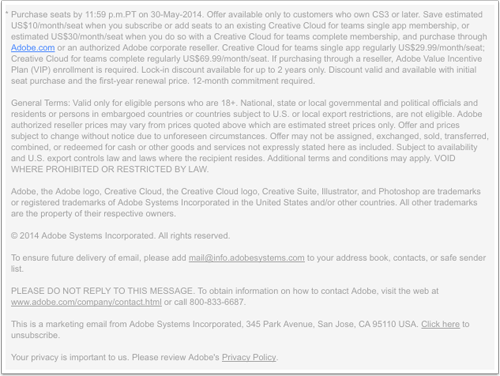Some email related news
A couple links to relevant things that are happening in email.
M3AAWG released the Help! I’m on a Blocklist! (PDF link) doc this week. This is the result of 4 years worth of work by a whole lot of people at M3AAWG. I was a part of the working group (“doc champion” in M3AAWG parlance) and want to thank everyone who was involved and contributed to the process. I am very excited this was approved and published so people can take advantage of the collective wisdom of M3AAWG participants.
In other announcements, Gmail announced today on their Google+ page that that they were putting a new “unsubscribe” link next to the sender name when mail is delivered to the Promotions, Social or Forums tab. This appears to be the official announcement of the functionality they announced at the SF M3AAWG last February. It likely means that all users are currently getting the “unsubscribe” link. What Gmail doesn’t mention in that blog post is that this functionality uses the “List-Unsubscribe” header, not the link in the email, but I don’t think anyone except bulk mailers really care about how it’s being done, just that it is.
Also today Gmail announced they were going to recognize usernames with non-Latin or accented characters in the name. Eventually, they claim, they’ll also allow people to get Gmail addresses with accented characters.
